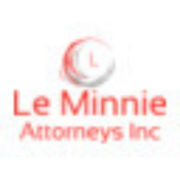Best Landlord & Tenant Lawyers in Malmesbury
Share your needs with us, get contacted by law firms.
Free. Takes 2 min.
Free Guide to Hiring a Real Estate Lawyer
List of the best lawyers in Malmesbury, South Africa
South Africa Landlord & Tenant Legal Questions answered by Lawyers
Browse our 3 legal questions about Landlord & Tenant in South Africa and read the lawyer answers, or ask your own questions for free.
- Can we evict tenants of our property if it is sold?
- May we evict the tenants of our property if it is sold. We have given them notice re this. They have not been paying rent nor deposit. We were very close of losing the house with the bank due to the tenants non payment
-
Lawyer answer by Recososa Law Firm
Hello:Under Philippine law, the rights of both the property owner and the tenants are governed mainly by the Civil Code and the Rent Control Act (if applicable depending on the rental amount). Since you mentioned that the tenants are not...
Read full answer - Eviction appeal
- Good day I had a tenant legally evicted and tool immediate occupation of my property she then went in later that day to her lawyers and got a re reentry court order, failing to disclose that I was already in the property. She and her boyfriend have broken in to... Read more →
-
Lawyer answer by SJ Law Experts
SJ Law Experts, IslamabadThank youSJ Law Experts, Islamabad [Advocates, Legal Advisors & Immigration Lawyers]
Read full answer - Is there a reason that my landlord is refusing to provide proof of putting my security deposit into an interest bearing account?
- The landlord at my former place of residence agreed to pay R8000 of my R11000 deposit after cleaning was done to the property. She provided a R2000 quotation fee but hasn't given me any other receipts to prove how the money was used. Despite that, I believe that cleaning was... Read more →
-
Lawyer answer by NARAG LAW OFFICE
That is not required by law. It is not even in the contract.
Read full answer
About Landlord & Tenant Law in Malmesbury, South Africa
Landlord and tenant law in Malmesbury, South Africa, is governed primarily by national legislation, with some municipal by-laws influencing aspects such as property use and municipal utilities. At its core, this area of law regulates the relationship between people or entities who own property (landlords) and those who occupy or use it (tenants), often within a rental or lease arrangement. Both parties have defined rights and responsibilities, which protect their interests under the law. Given Malmesbury’s blend of residential, agricultural, and commercial properties, landlord and tenant disputes can range from issues with residential leases to complications around farmland rentals.
Why You May Need a Lawyer
Many landlord-tenant issues can be resolved informally, but certain situations call for legal expertise. Legal assistance may be necessary in the following circumstances:
- Unlawful eviction or lockouts
- Failure to pay rent or disputes over unpaid rent
- Problems with maintenance or repairs not addressed by the landlord
- Discrimination or breaches of the lease based on protected grounds
- Ambiguous or unlawful lease terms
- Recovering a deposit unfairly withheld
- Disputes around municipal rates and utilities charges
- Tenants causing property damage
- Rental increases or termination notices that may not comply with the law
- Negotiating commercial or agricultural rental agreements
Legal professionals can interpret complex legislation, help draft or review agreements, represent clients in court or tribunal proceedings, and provide guidance specific to Malmesbury’s local context.
Local Laws Overview
In Malmesbury, landlord and tenant relationships are largely governed by national legislation, including the Rental Housing Act, the Consumer Protection Act (where applicable), and the Prevention of Illegal Eviction from and Unlawful Occupation of Land Act (PIE Act). Local by-laws may affect property use and services.
Key aspects include:
- Written Lease Agreements: While verbal agreements are valid, written contracts offer better protection and clarity for both parties and are highly recommended.
- Deposits: Landlords may request a deposit, which must be kept in interest-bearing accounts. Deductions can only be made for damages or unpaid rent, and receipts must be provided.
- Repairs and Maintenance: The landlord is usually responsible for structural repairs; tenants should report issues promptly and look after the property.
- Evictions: No eviction may occur without a court order, and the correct legal process must be followed under the PIE Act to protect vulnerable tenants.
- Rent Increases: Increases must comply with lease terms or be reasonable and must usually be communicated in writing in advance, generally giving at least a month’s notice.
- Utilities and Rates: Clarity should exist regarding responsibility for municipal rates and utilities; disputes often arise when contracts are vague on these points.
Specific by-laws adopted by the Swartland Municipality may influence aspects such as water, sanitation, and land use. Seeking localized advice is often beneficial for these matters.
Frequently Asked Questions
What happens if I do not have a written lease agreement?
Verbal rental agreements are legally binding in South Africa, but they can make it difficult to prove specific terms if there is a dispute. Having a written agreement is strongly advised to protect both parties.
How much notice must my landlord give before increasing the rent?
Unless otherwise stated in your lease, landlords should provide at least one month’s written notice before implementing any rent increases. The increase must be reasonable and not in breach of the Consumer Protection Act.
Can my landlord evict me for no reason?
No. A landlord must have a valid reason (such as lease expiry or breach) and follow the legal eviction process, including obtaining a court order. Self-eviction or lockouts are illegal.
Am I entitled to get my deposit back?
Yes, if you have not caused damage (other than normal wear and tear) and all rent is paid. The landlord must provide written statements and return the deposit within 14 days of lease termination (after deducting any legitimate expenses).
Who is responsible for repairs?
Generally, landlords are responsible for structural and maintenance repairs, while tenants must keep the property clean and undamaged. The lease should specify who handles what types of repairs.
What can I do if my landlord refuses to fix serious issues?
Notify your landlord in writing and keep copies. If the issue remains unresolved, you may approach local authorities, the Rental Housing Tribunal, or seek legal advice.
Can I sublet the property I am renting?
You may only sublet if your lease agreement allows it or you have written consent from your landlord. Unauthorized subletting could lead to the lease being terminated.
How are utility bills handled?
Responsibility for paying water, electricity, and other utilities should be clearly set out in your lease. Disputes can arise when this is not specified.
What rights do tenants have in terms of privacy?
Landlords may not enter the property without the tenant’s permission except in emergencies or with reasonable notice (typically 24 hours) for inspections or repairs.
What can I do if my tenant is not paying rent?
Start by communicating and attempting to resolve the issue. If unpaid rent persists, you may provide notice in accordance with the law and, if unsuccessful, begin the legal process to recover the property, which requires a court order.
Additional Resources
Malmesbury residents seeking landlord and tenant guidance have several resources available for information and mediation:
- Swartland Municipal Housing Office: Guidance on by-laws, municipal rates, and services.
- Western Cape Rental Housing Tribunal: Offers dispute resolution, advice, and mediation for rental disputes.
- Legal Aid South Africa (Malmesbury & Western Cape): Provides legal support for eligible individuals.
- Department of Human Settlements (Western Cape): Policy advice and resources for housing issues.
- Local magistrates’ court: Processes eviction orders and legal disputes if unresolved through mediation.
- Private attorneys specializing in property or tenancy law.
Next Steps
If you are facing a landlord or tenant issue in Malmesbury:
- Try to resolve the dispute amicably and document all communication.
- Consult your written lease and any correspondence.
- If resolution fails, gather all supporting documents (lease, payments, notices, photos).
- Contact the Western Cape Rental Housing Tribunal for advice or mediation, particularly for residential matters.
- Seek legal assistance-either through Legal Aid (if you qualify) or a private attorney with landlord & tenant experience.
- For urgent matters, such as illegal eviction or health hazards, contact the police or municipal offices for immediate protection and guidance.
Understanding your rights and obligations is vital. Professional legal advice ensures your interests are fully protected, prevents costly mistakes, and clarifies your next steps under the law.
Lawzana helps you find the best lawyers and law firms in Malmesbury through a curated and pre-screened list of qualified legal professionals. Our platform offers rankings and detailed profiles of attorneys and law firms, allowing you to compare based on practice areas, including Landlord & Tenant, experience, and client feedback.
Each profile includes a description of the firm's areas of practice, client reviews, team members and partners, year of establishment, spoken languages, office locations, contact information, social media presence, and any published articles or resources. Most firms on our platform speak English and are experienced in both local and international legal matters.
Get a quote from top-rated law firms in Malmesbury, South Africa — quickly, securely, and without unnecessary hassle.
Disclaimer:
The information provided on this page is for general informational purposes only and does not constitute legal advice. While we strive to ensure the accuracy and relevance of the content, legal information may change over time, and interpretations of the law can vary. You should always consult with a qualified legal professional for advice specific to your situation.
We disclaim all liability for actions taken or not taken based on the content of this page. If you believe any information is incorrect or outdated, please contact us, and we will review and update it where appropriate.









